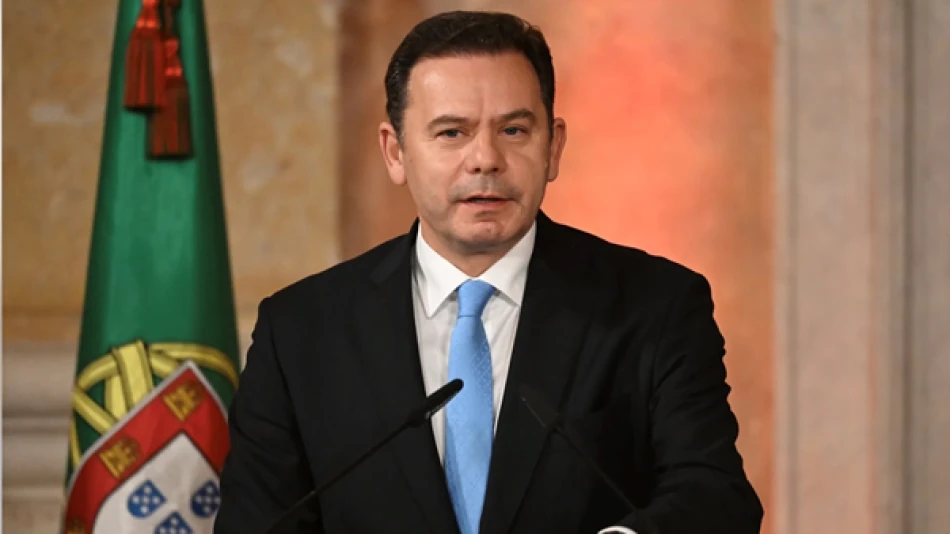
Portuguese PM Mulls Recognizing Palestinian Statehood
Portugal Joins Growing European Push to Recognize Palestinian Statehood at UN
Portugal announced Thursday it will consult with its president and parliament to formally recognize Palestine as a state at the United Nations in September, joining France in a coordinated European diplomatic initiative that could reshape Middle East policy across the continent. The timing coincides with the 80th UN General Assembly session, suggesting a strategic effort to maximize international attention and pressure.
Strategic Timing Points to Coordinated Diplomatic Campaign
The Portuguese Prime Minister's office stated the country is considering "recognition of the State of Palestine within a procedure that may take place during the week of the 80th session of the UN General Assembly in New York next September." This mirrors French President Emmanuel Macron's earlier commitment to officially recognize Palestinian statehood before the same UN gathering.
The synchronization is no coincidence. By clustering these announcements around the UN General Assembly—the world's premier diplomatic stage—European nations appear to be orchestrating maximum impact for what could become a watershed moment in Palestinian recognition efforts.
France Leading European Momentum
French Foreign Minister Jean-Noël Barrot has indicated that additional European countries "will confirm their intention to recognize the State of Palestine," though he declined to specify which nations in his interview with weekly publication "La Tribune Dimanche." This suggests a broader coalition is forming behind closed doors.
France's leadership role reflects its traditional Middle East diplomatic influence and Macron's efforts to position France as a mediating power between Western allies and the Global South on Palestinian issues.
Breaking with Traditional EU Consensus
This European movement represents a significant shift from the bloc's historically cautious approach to Palestinian recognition. Previously, EU nations largely deferred to the United States' preference for recognition to emerge from direct Israeli-Palestinian negotiations rather than unilateral declarations.
The change suggests growing European frustration with the stalled peace process and a desire to assert independent foreign policy positions, particularly as transatlantic relations on Middle East issues have grown more complex.
Implications for International Relations
For European governments, Palestinian recognition offers a way to respond to domestic political pressure while signaling displeasure with current Middle East dynamics. However, the move risks straining relationships with Israel and potentially complicating coordination with the United States on broader regional security issues.
The September timing also provides these nations with months to build additional support and potentially pressure other EU members to join the initiative, creating momentum that could prove difficult for holdout countries to resist.
Currently, nine EU member states recognize Palestine, including Sweden, which became the first major Western European nation to do so in 2014. If Portugal and France proceed as planned, along with the unnamed countries Barrot referenced, Palestinian recognition could shift from a minority position to mainstream European policy.
Most Viewed News

 Layla Al Mansoori
Layla Al Mansoori






